-
 bitcoin
bitcoin $107015.826941 USD
-2.18% -
 ethereum
ethereum $3637.352324 USD
-5.18% -
 tether
tether $0.999831 USD
-0.02% -
 xrp
xrp $2.338078 USD
-6.23% -
 bnb
bnb $998.272150 USD
-6.97% -
 solana
solana $167.598257 USD
-10.12% -
 usd-coin
usd-coin $0.999863 USD
0.01% -
 tron
tron $0.282573 USD
-5.09% -
 dogecoin
dogecoin $0.169891 USD
-7.39% -
 cardano
cardano $0.557554 USD
-7.03% -
 hyperliquid
hyperliquid $39.914802 USD
-5.85% -
 chainlink
chainlink $15.414549 USD
-9.97% -
 bitcoin-cash
bitcoin-cash $510.361911 USD
-4.26% -
 ethena-usde
ethena-usde $0.999194 USD
-0.03% -
 stellar
stellar $0.282092 USD
-6.07%
How to find my Ethereum private key in Exodus Wallet?
Exodus hides Ethereum private keys by default for security but allows advanced users to export them securely via the desktop app after authentication.
Oct 10, 2025 at 08:37 pm
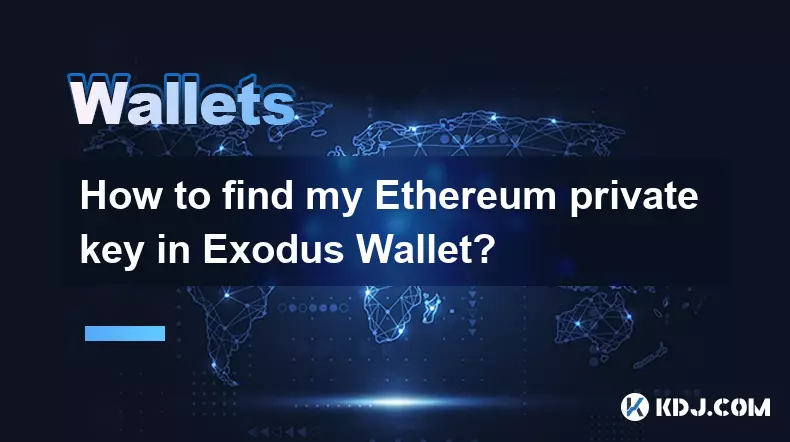
Understanding Ethereum Private Keys in Exodus Wallet
1. The private key is a critical component of any cryptocurrency wallet, including Exodus. It grants full access to the associated Ethereum address and all funds stored within it. Without the private key, recovery of assets becomes impossible if the device is lost or damaged.
2. Exodus Wallet is designed with user-friendliness and security in mind. Unlike some non-custodial wallets that expose private keys by default, Exodus hides them behind an extra layer of protection. This design choice minimizes the risk of accidental exposure or misuse by inexperienced users.
3. Exodus does not display your Ethereum private key directly within the standard interface. This is intentional to prevent unauthorized access. However, the option to export the key exists for advanced users who understand the risks involved.
4. Accessing the private key requires navigating through specific settings inside the desktop version of the Exodus application. Mobile versions do not support this function, emphasizing the importance of using secure desktop environments when handling sensitive operations.
5. Before attempting to reveal the private key, ensure your computer is free from malware and that no one else has access to your session. Any compromise during this process could lead to irreversible loss of funds.
Steps to Export Your Ethereum Private Key
1. Open the Exodus desktop application on your trusted computer. Make sure you are logged in and that the Ethereum wallet is visible and fully synced.
2. Click on the Ethereum asset within your portfolio view. A detailed panel will appear showing your balance, transaction history, and available actions like Send, Receive, and Swap.
3. Look for the 'Settings' gear icon located in the top-right corner of the Ethereum panel. Clicking this opens a dropdown menu containing several options related to wallet management.
4. Select 'View Recovery Phrase & Private Keys' from the dropdown. You will be prompted to enter your Exodus wallet password to proceed. This step verifies your identity and ensures only authorized users can access sensitive data.
5. Once authenticated, scroll down to locate the Ethereum section. Each supported cryptocurrency in Exodus has its own private key entry. Find the Ethereum entry and click 'Show Private Key.' A warning message will appear, reminding you of the dangers associated with exposing this information.
6. After confirming the warning, your Ethereum private key will be revealed in plain text. This key must be stored securely—preferably offline—and never shared with anyone. Taking a screenshot or saving it in an unencrypted file increases the risk of theft.
Security Best Practices When Handling Private Keys
1. Never share your private key with anyone. Legitimate services will never ask for it. Anyone possessing your private key can transfer your funds without your permission.
2. Avoid storing the private key in digital formats connected to the internet. Cloud storage, email drafts, or text files on networked devices are vulnerable to hacking.
3. Consider writing the key down on paper and storing it in a physically secure location such as a safe. Use multiple copies if necessary, but ensure each copy is protected from fire, water, and unauthorized access.
4. Be cautious of phishing attempts. Fake websites or cloned Exodus interfaces may trick users into entering their passwords or revealing private keys. Always verify the authenticity of the software and website URLs.
5. If you suspect your private key has been compromised, transfer your funds immediately to a new wallet with a fresh seed phrase and private key. Delaying this action could result in total loss of assets.
Frequently Asked Questions
Can I recover my Exodus wallet using only the Ethereum private key?
No. While the Ethereum private key allows access to the Ethereum funds specifically, it does not restore other assets in your Exodus wallet. Full recovery requires the original 12-word recovery phrase, which encompasses all cryptocurrencies held in the wallet.
What happens if someone gets my Ethereum private key?
If your private key is exposed, the individual holding it can sign transactions and drain all Ethereum and ERC-20 tokens from that address. There is no way to reverse these transactions once executed on the blockchain.
Is it safe to use third-party tools to check my private key balance?
No. Entering your private key into any third-party website or tool puts your funds at immediate risk. These platforms can log your key and steal your assets. Balance checking should only occur within trusted, official wallet software like Exodus.
Does Exodus store my private key on their servers?
No. Exodus is a non-custodial wallet, meaning private keys are generated and stored locally on your device. The company does not have access to your keys or funds under any circumstances.
Disclaimer:info@kdj.com
The information provided is not trading advice. kdj.com does not assume any responsibility for any investments made based on the information provided in this article. Cryptocurrencies are highly volatile and it is highly recommended that you invest with caution after thorough research!
If you believe that the content used on this website infringes your copyright, please contact us immediately (info@kdj.com) and we will delete it promptly.
- ZKsync Tokenomics: Utility Shift or Just Another Altcoin Bounce?
- 2025-11-05 00:40:13
- BTC, UK, Treasury Plan: Smarter Web's Bold Bitcoin Bet
- 2025-11-05 01:00:17
- Veterans Day Salute: Army & Air Force Exchange's Coin Giveaway and More!
- 2025-11-05 01:30:12
- Altcoin Investment in 2025: Is BlockchainFX Outperforming Render and Pudgy Penguins?
- 2025-11-05 01:30:12
- Blockchain Gaming: Digital Assets Unlock New Value and Combat Bots
- 2025-11-05 01:10:02
- Crypto Payroll's Meme Coin Dilemma: Hype vs. Stability, Ya Feel?
- 2025-11-05 01:20:01
Related knowledge
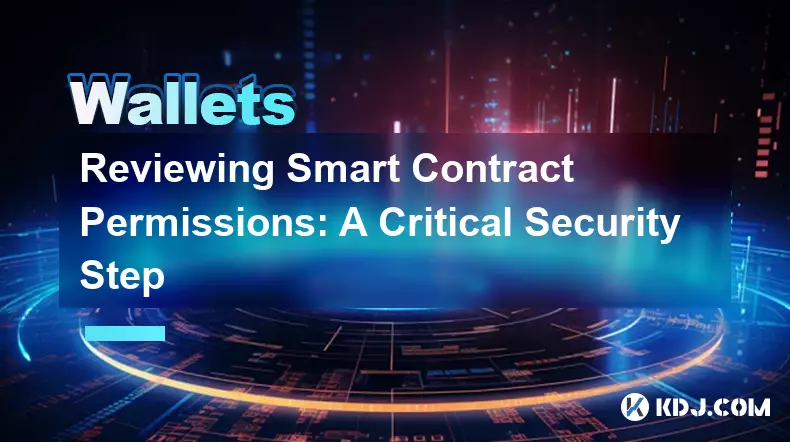
Reviewing Smart Contract Permissions: A Critical Security Step
Nov 01,2025 at 04:55pm
Understanding Decentralized Exchanges in the Crypto Ecosystem1. Decentralized exchanges (DEXs) have reshaped how traders interact with digital assets ...
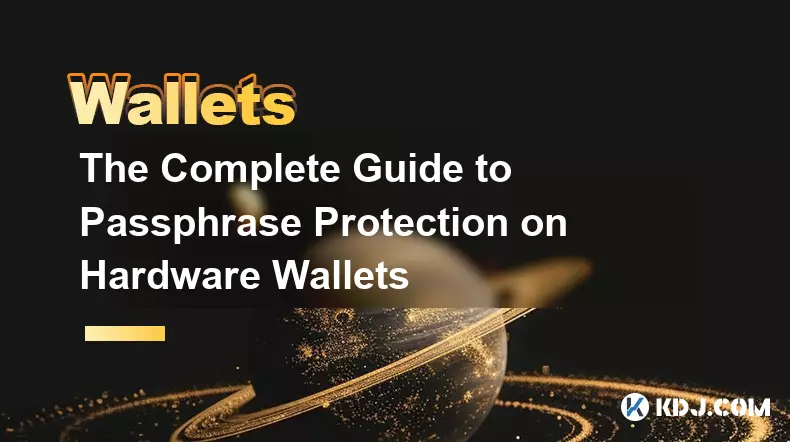
The Complete Guide to Passphrase Protection on Hardware Wallets
Nov 03,2025 at 10:37am
Understanding Passphrases in Hardware Wallets1. A passphrase, often referred to as a 25th word, adds an additional layer of security beyond the standa...
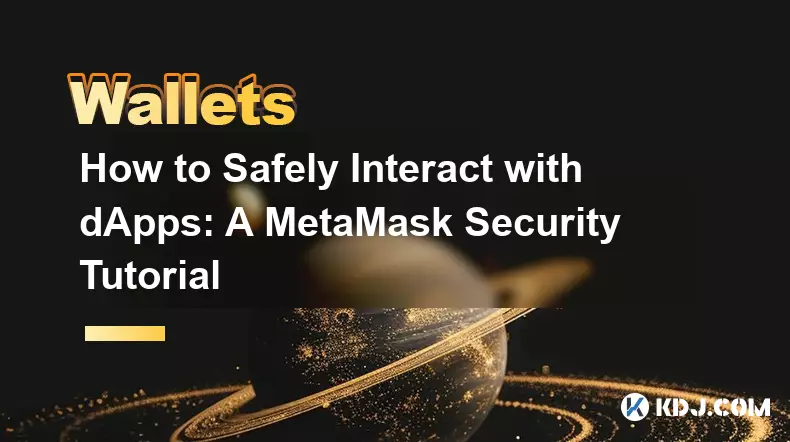
How to Safely Interact with dApps: A MetaMask Security Tutorial
Nov 04,2025 at 02:54am
Understanding dApp Interaction Risks1. Decentralized applications (dApps) operate on blockchain networks, enabling users to trade tokens, lend assets,...

Software Wallet Security Vulnerabilities You Need to Know
Nov 01,2025 at 11:37am
Common Exploits Targeting Software Wallets1. Phishing attacks remain one of the most widespread threats to software wallet users. Cybercriminals desig...
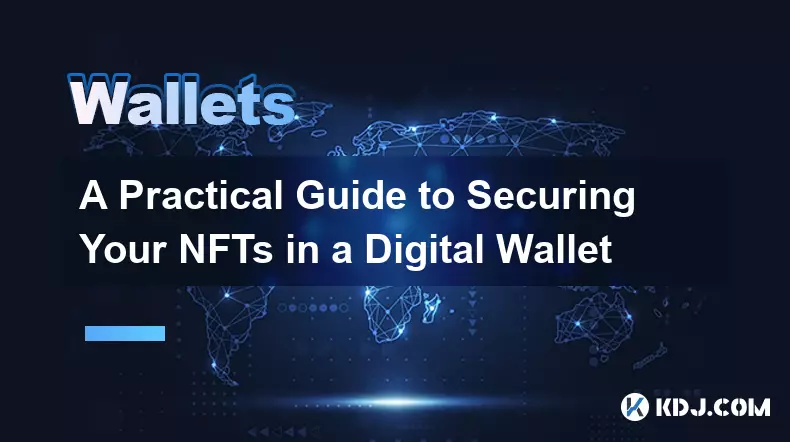
A Practical Guide to Securing Your NFTs in a Digital Wallet
Nov 03,2025 at 04:55am
Understanding NFT Wallet Security Fundamentals1. NFTs, or non-fungible tokens, exist on blockchain networks such as Ethereum, Solana, and Polygon, mak...

Key Management in Crypto: Best Practices for Ultimate Security
Nov 04,2025 at 05:18am
Understanding the Importance of Key Management in Cryptocurrency1. In the world of cryptocurrency, private keys serve as the ultimate proof of ownersh...

Reviewing Smart Contract Permissions: A Critical Security Step
Nov 01,2025 at 04:55pm
Understanding Decentralized Exchanges in the Crypto Ecosystem1. Decentralized exchanges (DEXs) have reshaped how traders interact with digital assets ...

The Complete Guide to Passphrase Protection on Hardware Wallets
Nov 03,2025 at 10:37am
Understanding Passphrases in Hardware Wallets1. A passphrase, often referred to as a 25th word, adds an additional layer of security beyond the standa...

How to Safely Interact with dApps: A MetaMask Security Tutorial
Nov 04,2025 at 02:54am
Understanding dApp Interaction Risks1. Decentralized applications (dApps) operate on blockchain networks, enabling users to trade tokens, lend assets,...

Software Wallet Security Vulnerabilities You Need to Know
Nov 01,2025 at 11:37am
Common Exploits Targeting Software Wallets1. Phishing attacks remain one of the most widespread threats to software wallet users. Cybercriminals desig...

A Practical Guide to Securing Your NFTs in a Digital Wallet
Nov 03,2025 at 04:55am
Understanding NFT Wallet Security Fundamentals1. NFTs, or non-fungible tokens, exist on blockchain networks such as Ethereum, Solana, and Polygon, mak...

Key Management in Crypto: Best Practices for Ultimate Security
Nov 04,2025 at 05:18am
Understanding the Importance of Key Management in Cryptocurrency1. In the world of cryptocurrency, private keys serve as the ultimate proof of ownersh...
See all articles










































































